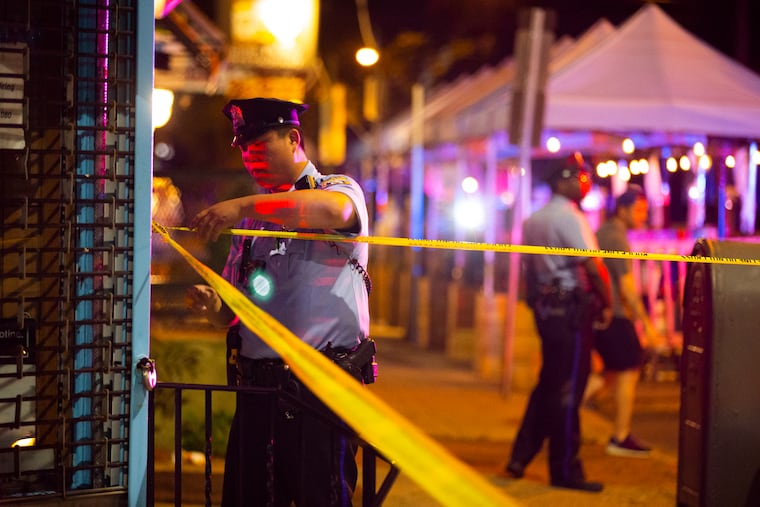Don’t use mental health to deflect conversations from gun reform | Expert Opinion
As mental health experts, we believe the answer to preventing mass shootings is not mental health reform. It is gun reform.

The day after the Uvalde, Texas, school massacre, multiple lawmakers blamed these murders on mental health problems, declaring that our society must increase access to mental health care. These claims were made despite the lack of evidence that the shooter had any documented history of mental health problems. Following the weekend’s mass shooting event on South Street in Philadelphia, the topic of the shooters’ mental health will likely arise as well.
As clinical psychologists and mental health services researchers who spend our careers studying the implications of chronic underfunding of mental health services, we usually celebrate having mental health thrust upon the national stage. In this case, however, lawmakers are using mental health to deflect conversations away from the critical need for gun reform. At best, it’s a distraction. At worst, it is deeply offensive, stigmatizing, and unfounded.
» READ MORE: Uvalde showed us what police are really for | Will Bunch Newsletter
Let’s for a moment take seriously the suggestion that we can create a mental health system that is set up to “catch” an individual at risk for committing a mass murder. A first, necessary step in doing so would be universal, frequent mental health screenings, starting when children are young and continuing through adulthood.
We’d also have to invest heavily in improving our screening tools because existing mental health screening tools are imperfect and will not identify all those at risk. Some screening would have to be separate from the health-care system, since not all youth — particularly those who are high-risk — see a doctor regularly. We would need a screening system separate from schools as well, since most mass murderers have aged out of school.
To be effective, this screening would have to immediately give any individual who appears to need help a comprehensive evaluation, then connect them to a service provider with specialized expertise to address the challenges they are experiencing. But current wait times for a therapy appointment average several weeks or more, and nearly half of mental health providers may not take insurance, so we’d need to invest billions of dollars to increase the workforce and make mental health care freely available.
All these changes would greatly increase access to needed mental health care. But now let’s talk about what happens when this theoretical system identifies someone deemed at risk of causing harm.
Currently, if a mental health professional identifies someone as being a potential threat to themselves or others, our laws intentionally make it difficult for that person to be involuntarily committed. This is in line with the American value of protecting one’s individual freedoms and rights to autonomy — it is only with great care and in-depth assessment that personal rights can be stripped. Otherwise, anyone having a rough day who carelessly tosses out statements such as “I should just kill myself” or “I want to strangle my boss” could end up involuntarily committed when they pose little to no actual risk.
Any mental health system that was designed to prevent mass shootings would have to give mental health professionals tremendous power to take away individual rights. Creating such a system would remove more individual freedoms than evidence-based restrictions on gun ownership, such as implementing a two-day waiting period before purchasing a firearm or banning sales of high-capacity magazines.
So yes, we should pay attention to mental health and expand access to mental health screening and treatment. Yes, more investment is needed to fix the crumbling infrastructure of our mental health system. But, as we would tell our patients, we must approach an emotional issue with a rational brain: One cannot act on an impulse to harm another person (or oneself) with a gun if they do not have easy access to one.
“One cannot act on an impulse to harm another person (or oneself) with a gun if they do not have easy access to one.”
As mental health experts, we believe the answer to preventing mass shootings is not mental health reform. It is gun reform.
Gun regulations are a far more logical, direct choice and a proven path to success for preventing future massacres than building a mental health system that infringes on one’s freedom. We have examples in other countries, like Australia and New Zealand, to learn how to control (not eliminate) firearms.
Let’s invest in mental health to address the ongoing mental health crisis — not to prevent mass shootings.
Emily Becker-Haimes is an assistant professor at the Penn Center for Mental Health and the clinical director of the Pediatric Anxiety Treatment Center at Hall-Mercer. Rebecca Stewart is an assistant professor at the Penn Center for Mental Health. David Mandell is the Kenneth E. Appel Professor of Psychiatry at the University of Pennsylvania Perelman School of Medicine and the director of the Penn Center for Mental Health. All three are senior fellows at the Leonard Davis Institute of Health Economics.